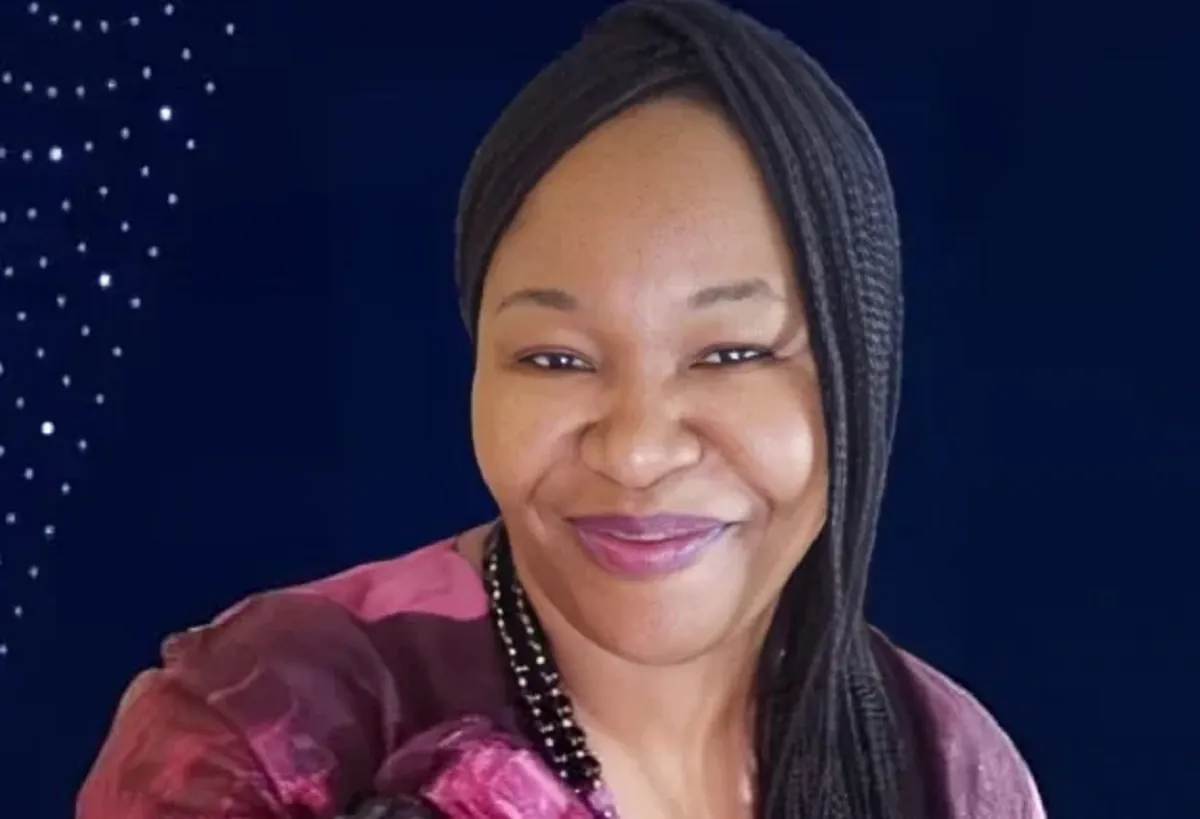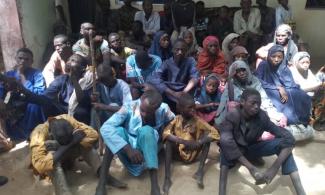Copyright tribuneonlineng

Dr Foluke Sarimiye is a radiation and clinical oncologist and psycho-oncologist at the University of Ibadan and University College Hospital (UCH) Ibadan. She is also the Executive Director of the Patela Care Foundation. In this interview with SADE OGUNTOLA, she speaks to the incidences of breast cancer in Nigeria and how individuals can ensure they are free of breast cancer. October is the breast cancer month set aside to raise awareness on prevention and routine screening for early diagnosis of breast cancer. What is its aim? Breast cancer is the most widely studied cancer, with a lot of data and information in terms of cancer control and care. It is one of the most treatable types of cancers with available screening recommendations. While the mortality rate for breast cancer is rising, we still have a sizable number of survivors that are doing well because treatment options are more available for different subtypes of breast cancers and psychosocial support is improving. Some research show that breast cancer in women of African descent is more aggressive compared to women without African ancestry. So, it’s recommended that every lady from the age of 40 in Africa should have an annual mammogram. Before the age of forty, adolescent girls should perform monthly breast self-examinations. They can be taught by their mums or identified trusted healthcare professionals. Young girls need to know how their breasts naturally feel so that they can easily detect any form of abnormality, like a lump in the breast. A clinical breast examination is recommended every two years for women aged 29 to 39 years. However, reiterating what I said earlier, women aged 40 and above, in addition to monthly breast self-examination and clinical breast examination once in two years, must have an annual mammogram. The mammogram can detect breast lumps at least two years earlier than when a lady feels them. The smaller a cancerous lump, the easier and better the treatment options and its clinical outcome. Though clinical outcome is multifactorial, early detection and prompt treatment are still the best approach to improve survivorship. Not all women will need a total mastectomy. It might just be a part of the breast that will need some level of surgery. Fortunately, breast reconstruction and cosmetic surgery are readily available in the country, including here at University College Hospital (UCH), Ibadan. This means women can access the care they need to regain confidence and a positive body image after breast surgery or other breast-related concerns. Not all breast lumps are cancerous. If a lady finds a lump during a monthly breast examination or clinical breast examination, or it’s detected on a mammogram, that shouldn’t cause a scare because not all breast lumps are malignant. Regardless, once a lump is identified, it must be excised and taken to the pathologist for evaluation to know whether it’s benign or malignant. It is said regarding breast cancer that “every story is unique, every journey matters”. What does this mean? That’s correct; every cancer journey is personal and unique. Two ladies can have breast cancer, and their journey will be totally different. They may have different subtypes of breast cancer, their treatment options, and the way they will respond to treatment may be totally different. Every patient diagnosed with breast cancer has their own personal journey because there are different types of breast cancer with different prognoses and treatment options and also different psychosocial dimensions. What are the warning signs of breast cancer? The major sign is a small-sized, hard lump in the breast and sometimes in the armpit. Most times it’s not painful, which is why people overlook it. Pain is a gift from God to make us act. There are some instances when the breast lump is painful, but generally it starts as a painless lump in the breast. Is it true that in every case of breast cancer the woman will have a lump in the breast? We’ve had pockets of cases where the lady wouldn’t have or notice a lump in the breast but just have metastatic symptoms at the time of presentation. There are other symptoms such as increasing breast lumps, breast skin changes, nipple changes, and breast pain; all these can progress to fungating breast masses and metastatic symptoms, that is, cancer begins to spread to other parts of the body. We don’t want any woman coming to the hospital at such stages. We want women to present at an early stage, that is, with a painless, very small-sized malignant breast lump, where the chance of survivorship is high. At about what age is breast cancer mostly found in Nigerian women? Is it different from that in the Caucasians? There are different kinds of cancers, but the general knowledge is that the chances of a cancer developing increase with age. In fact, a school of thought is that if people live long enough on the face of the earth, they will have cancer. So cancer is found more among older adults. But we do have breast cancers also in younger women, particularly women who have a family history of breast cancer. For example, individuals who have first-degree relatives and second-degree relatives with cancer have a higher risk of developing cancer. That is why ladies with a recognized family history of breast cancer are advised to start recommended breast screening before the age of 40. Is breast cancer more common in Black women than white women? Do we have more cases in Nigeria than elsewhere? Globally, in recent years, the incidence of breast cancer is now equivalent between women of African descent and non-African descent; in the past, the incidence was higher among Caucasians, but the mortality rate is higher among women of African descent. This is because they are more likely to be diagnosed with aggressive subtypes of breast cancer. People with aggressive subtypes of breast cancer have limited treatment options as compared to other subtypes of breast cancer. The mortality rate from breast cancer is high in Nigeria because of late presentation due to false perceptions people have about cancer. There is the wrong and false notion that cancer is a death sentence. This is one of the reasons we should amplify the voices of cancer survivors in Nigeria to show that breast cancer and other cancers are not death sentences. Then also financial toxicity: treatment for cancer is expensive, even for the well-to-do families. Some families sell personal properties just to pay for treatment. Also, our religious and cultural religious beliefs contribute to people presenting late. We have seen people with high educational status still opting for unorthodox treatment of cancer. Unfortunately, in most cases, when such individuals present again at the oncology clinic after the unorthodox pathway fails, it’s usually late; they come with metastatic symptoms. The oncology team tries to palliate symptoms to improve their quality of life. We try to add life to their years, but we cannot add years to their lives. How can individuals with a higher risk tap into genetic testing and counselling to reduce their chances of coming down with this cancer? Families who have more than one first- and second-degree relative diagnosed with breast cancer are generally advised to have genetic genetic counselling. This does not automatically mean every lady in the family will have breast cancer. So genetic counselling is advised for people who have more than one first- and second-degree relative diagnosed with cancer. The screening recommendations for individuals in these families are different compared to the general populace. They start their screening much earlier, and depending on the kind of genetic counselling and advice they get, they might opt for different prophylactic treatment options. Genetic testing and counselling are available in few hospitals, including University College Hospital. We have few genetic counsellors in Nigeria. Are cases of breast cancer on the rise globally? Are cases rising in Nigeria? Also cancer incidence and mortality globally are predicted to increase significantly by 2050. So yes, its incidence is going to rise. This has been partly attributed to many factors, including urbanization, poor health-seeking behaviour and lifestyle, and environmental pollution. Basically, there are modifiable risk factors and the unmodifiable risk factors for breast cancer. The unmodifiable risk factors are things that we can’t control. It includes increasing age and being a female. Of note, breast cancer occurs in males also, but we find it more among women. The modifiable risk factors are things that we can control and include sedentary lifestyle, physical inactivity, lack of exercise, alcohol abuse, smoking and high consumption of fatty food, red meat, sugar and salt. All of these are poor health-seeking behaviours that people need to work on and do better. Also, there are environmental pollutants and high-level exposure to radiation and ultraviolet rays. Chronic exposure to UV radiation from the sun can cause things like skin cancers, particularly in the albinos; also, working in chemical-making industries and not adhering to safety guidelines, like wearing protective gear and goggles, poses a risk of developing lung cancer or even skin cancers. Chronic viral infections like hepatitis B can eventually lead to liver cancer; chronic persistent human papillomavirus infection can make cells mutate and cause different types of cancers like cervical cancer. How can individuals stay free of cancer? So long as we’re here on planet Earth, it’s impossible to eliminate all health risks, but taking proactive steps can minimize our chances of getting sick. The advice and recommendation are good health-seeking behaviours: eating balanced meals, drinking lots of water, and eating fruits and vegetables; exercising regularly; taking less sugar, salt, and red meat; and not smoking. Also observing annual medical checkups, particularly for people aged 40 and above. Does less sugar cause cancer as suggested in social media? Sugar doesn’t directly cause cancer; it’s one of the cancer myths that should be debunked. High levels of sugar in the body can cause some level of metabolic changes and inflammation in the body, which also could trigger cells to function abnormally and eventually cause cancer. I explained earlier that cancer can be described as an ailment where cells divide uncontrollably and abnormally because these cells have lost their ability to listen to natural body signals and functions due to an underlying onslaught going on in the body. So, people can enjoy the sweet pleasures, but it should be done in moderation; particularly from the age of 40, our health should be the topmost vital priority. Are there new discoveries or unique things you are coming across while working in the community or at the hospital, attending to your clients? In terms of awareness, we still see people at the clinic claiming that they have never heard about breast cancer before, either on the radio, TV, social media or during community health outreaches. This means that healthcare professionals in the oncology space still need to do more to improve breast cancer awareness. In clinical practice, we’ve seen pockets of younger women coming down with breast cancer, some in their thirties; I’ve seen about four cases like that this year. They were all diagnosed with triple-negative breast cancer. We also still see people with conflicting ideology on how to balance our religious and cultural beliefs and receive proper treatment. This conflicting issue is not only seen in indigent families but also in families with higher educational and socioeconomic status. I usually advise them to take the orthodox approach, take proper treatment with faith and a religious approach, and not discard either. Both are important to achieving good clinical outcomes. In research, we have lots of new scientific discoveries in recent years that have generated better treatment options, clinical outcomes, and good survivorship for people diagnosed with breast cancer. The Federal Government has also executed some laudable initiatives to reduce the financial toxicity of cancer. We have the Cancer Health Fund, which operates under the oversight of the National Institute for Cancer Control and Treatment (NICRAT). In conclusion, I would like to reiterate that cancer is not a death sentence; we have lots of survivors doing well in Nigeria, and early detection and prompt action to start treatment increase survivorship. As we commemorate Breast Cancer Awareness Month, I encourage all women aged 40 and above to prioritise their health with an annual mammogram.



